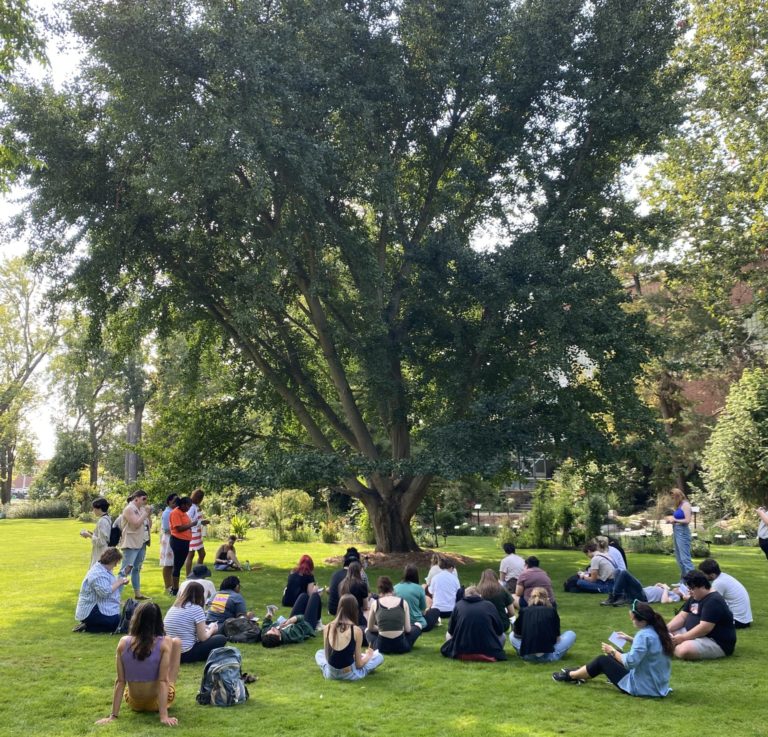Fostering an Accessible Environment within the Writing Center

By: Abby Wisniewski
In January, I suffered an injury that would change the course of my college career. It was instantaneous; I went from being able to walk to navigating the world in a wheelchair. It was a rough transition, but I learned from it. The truth is, disabled people live in a world custom-fit for non-disabled people. The digital world and the physical world often prioritize the demands of non-disabled individuals. This is interesting, given that disability is one of the only identity markers that can happen to anyone at any given time.
I once had a professor tell me that you either are born with a disability or you will die with a disability. At the time, I didn’t quite know what she meant by this. However, the bluntness of her words stuck with me. Now, I see that she is absolutely right; everyone will have a form of disability at some point in their lives. It is inevitable, but completely normal.
There are a lot of spaces on campus that fail to accommodate physically disabled individuals. I was thankful for the elevator, ramps, and handicap buttons in Bessey Hall that reminded me how we can all do more to improve accessibility. These features may not seem imperative to the building, but to people with limited mobility, they mean everything. It shows that even a building constructed over 60 years ago is capable of improvements that accommodate disabilities.
One of my favorite aspects of the Writing Center at MSU is the continued support given to persons with disabilities. It’s important that we offer multimodal ways of communicating because not all modes of communication are accessible to everyone. As consultants, we must expect disability within our work and strive to best accommodate the needs of every writer. We must work to amplify the voices of disabled writers and challenge our own perspectives when it comes to disability. We must recognize different forms of disability and understand the intersectionalities that may occur within disability. When accessibility is prioritized, it benefits everyone.


